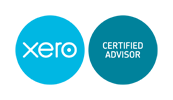ATO releases new draft guidance products impacting private trusts
The ATO has released a suite of new guidance products that is set to have a major change on family trust distributions and tax arrangements.

The ATO has released new draft public advice and guidance (PAG) products relating to section 100A reimbursement agreements and division 7A of the Income Tax Assessment Act 1936.
The Draft Taxation Ruling TR 2022/D1 suite is open for consultation and clarifies the ATO’s position on reimbursement agreements under section 100A, and identifies arrangements that will not attract ATO compliance resources.
Draft Taxation Determination TD 2022/D1 outlines when “financial accommodation” arises under division 7A whilst Taxpayer Alert TA 2022/1 highlights arrangements of concern from the ATO where taxpayers are using adult-child beneficiaries of family trusts to avoid tax on income.
The ATO said the products are being released together as a package because of the overlap of the subject matter – the tax treatment of entitlements to certain amounts from private trusts.
“The draft guidance sets out the ATO’s preliminary but considered views on the interpretation of the relevant law, as well as guidance on how the ATO will administer the ATO view as expressed in the draft products,” the ATO said.
“We have included explanations of proposed transitional arrangements to support clients to adjust their tax affairs to comply with the draft guidance once it is finalised.”
The ATO affirmed that these products have been developed in response to submissions by tax advisers and their clients that they need greater certainty, through ATO public advice and guidance, to meet their tax obligations on the matters covered by the products.
The products address the situation when certain trust distributions may attract the operation of section 100A or division 7A of part III of the Income Tax Assessment Act 1936 (ITAA 1936), according to the ATO.
The guidance will be relevant to any trustee (or controller) of a closely trust that may have concerns about whether the trust anti-avoidance provision in section 100A may apply when trust income is distributed to relatively favourably taxed beneficiaries, but the benefits of that income are enjoyed by others.
It also addresses trusts that intend to, or have in the past, made a private company beneficiary presently entitled to trust income but not paid the amount on the basis that the amount is held in a sub-trust for the benefit of the private company and the arrangement avoids the application of division 7A.
“The vast majority of small businesses operating through a trust will not be affected by this public advice and guidance,” the ATO explained.
“If you have a reimbursement agreement in place or Division 7A applies, we encourage you to engage with your registered tax professional if you need further clarification or guidance on how these may affect you.
“The existing view on sub-trust arrangements has become difficult to maintain over time. It is unsupported by what we now understand to be the operation of the law and subsequent judicial decisions, and the practical administration of the position has the effect that the ATO’s ability to collect tax which has become due is impeded.
“To continue to adhere to existing guidance could result in unintended administrative impacts.”
Consultation on the draft PAG is open until 8 April to allow time to comment on the draft products and consider any impacts on existing and future arrangements.
“If you are involved with a trust, we encourage you to read the draft PAG, review your arrangements, and contact us or your registered tax professional if you need further clarification or guidance,” the ATO continued.
“We understand trust laws and governance can be complicated, and we are committed to providing the right advice and information to help you correctly comply with your tax obligations.”
Tony Zhang
25 February 2022
accountantsdaily.com.au




